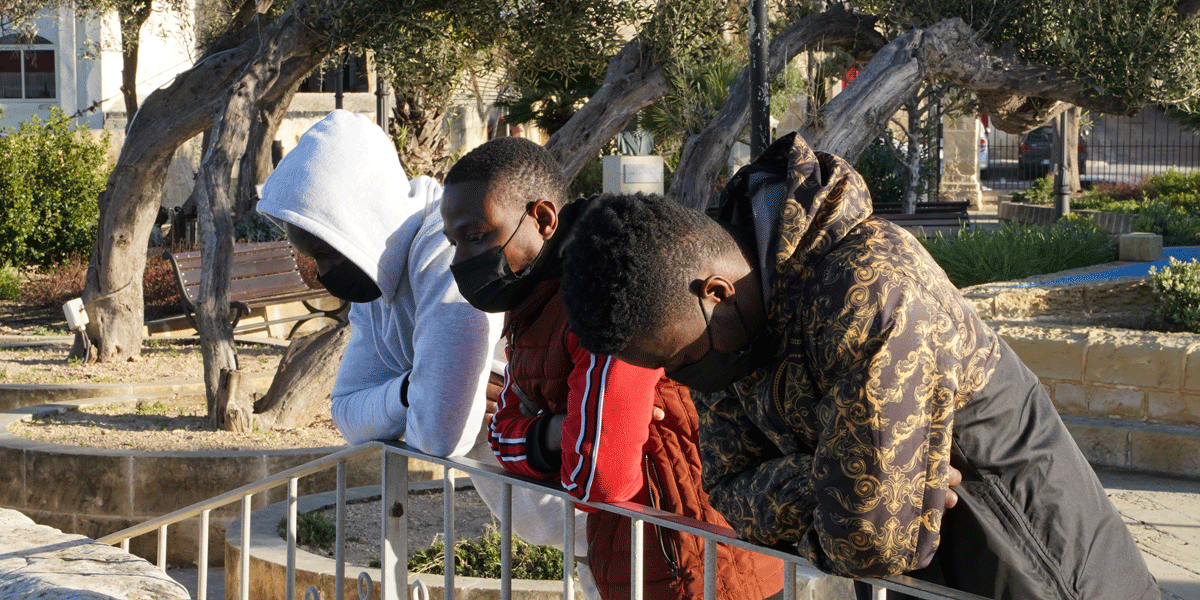


Scales of vulnerability
Jean Ziegler
Former Vice-President of the Advisory Committee
to the United Nations Human Rights Council
Never before in recent history have so many people been displaced. People flee from violence, insecurity, from the consequences of climate change and economic exploitation. The United Nations High Commissioner for Refugees (UNHCR) estimates that there were more than 84 million forcibly displaced people worldwide in 2021. Next to about 51 million so-called ‘internally displaced people’ some 21 million are recognised as ‘refugees’.
Every day, the UN World Food Programme headquarter in Rome takes executive decisions on the lives of tens of thousands of people. Vulnerable groups on the five continents are identified here in processes that essentially decide who gets to live and who gets to die. Some are unfortunate to find themselves classified as less vulnerable than others and therefore less deserving of help. While in Syria entire families are mutilated, burned, and murdered in a war that isn’t theirs, people in South Sudan suffer from terrible famines. In Juba tens of thousands of children, men and women have died from hunger, dehydration, and cholera since 2017. People who manage to escape from such conditions often fall through the protection net of the 1951 Geneva Refugee Convention. They are refused international protection because they are viewed as so-called economic migrants, and at other times they are forced into miserable camps.
In November 2019, the United Nations was celebrating the 30th anniversary of the Convention on the Rights of the Child (CRC) which has been signed and ratified by 196 states. Preparations for the celebration were in full swing while Abdalla, Amara and Kader were sitting in Maltese prison cells. Two of them were under the age of 18 and therefore recognised as minors under the Convention and Maltese national law. Both had their children’s rights, as seen in Article 2 of the CRC, violated when they were thrown into a high security prison:
"States Parties shall respect and ensure the rights set forth in the present Convention to each child within their jurisdiction without discrimination of any kind, irrespective of the child’s or his or her parent’s or legal guardian’s race, colour, sex, language, religion, political or other opinion, national, ethnic or social origin, property, disability, birth or other status."(Article 2(1), UN Convention on the Rights of the Child)
The arbitrary removal of rights is a known characteristic of the European border regime. When the migrant boat carrying Abdalla, Amara and Kader and more than a 100 other people set off from Libya, on the 26th of March 2019, European authorities instructed the merchant vessel, the El Hiblu 1, to return the survivors to Libya, in full knowledge that they had an obligation to identify a place of safety for disembarkation.
Every attempted or executed pushback operation, even if ‘by proxy’, represents a blatant violation of human rights and international law – disenfranchising people in need of protection from their right to apply for asylum and violating other fundamental human rights, such as the right to life. While this crime at sea was luckily averted with the help of the El Hiblu 3, their suffering continued after arrival in Malta. Instead of protecting the most vulnerable, they were criminalised and accused of terrorist activities, hijacking a ship and steering it toward Malta – a place, they didn’t even know existed.
Standing up for the El Hiblu 3 is necessary. The European Union is a democratic construct: we, the citizens, must mobilise public opinion and organise our struggle. We must declare war on the EU’s deterrence strategy, which is resulting in deaths, forcible disappearances and the destruction of lives. We cannot allow Europe to continue to punish people who are in need of protection!